School management for student better progress
Studies have already confirmed what experience had shown long ago: students are much more likely to achieve academic success if their parents have involved themselves in their child’s education.
This involvement includes not only active interest in how their child is doing at school, but also the fact that parents needs to encourage learning at home and motivate their children to make the most of their academic career.
This home support is very important, since children are more likely to appreciate the value of learning, but it won’t yield the desired outcomes unless there is an ongoing collaboration between parents and teachers. These two groups have to work together, so that a third group and the most important one, the students, could prosper. So, what can they all do to overcome obstacles along the road and how can schools facilitate this collaboration?
Parent engagement

The concept encompasses much more than just attending end-of-school-year event or occasional presence at Parent/Teacher meetings. Engagement in this context focuses on commitment, where parents are expected and encouraged to commit to prioritising their child’s educational goals, while teachers commit to hearing what parents have to say and providing space for collaboration. Schools management has to explain the importance of this to both sides and create opportunities for such collaboration to be established and thrive.
It is only in such an atmosphere that the impact on student can be profound. They have higher test scores, their attendance record is better, while their self-esteem is usually much higher than in those students whose parents are not involved enough in the process.
RELATED:
Communication channels
Schools need to create opportunities for teachers, parents and students to communicate. While there is not much they can do about the communication that takes place outside of the classroom, schools should be those who encourage communication between the staff and students and their parents.
Luckily, modern technology can play a crucial role in this. We are now able to keep in touch with others regardless of the physical distance between us. Obtaining information is easier than ever, which is a great asset for education in general, as well as for the collaboration between parents and teachers. Forward-thinking schools are using various types of student management software, which allows teachers to have better communication with parents and use comprehensive data to individualise and manage learning.
Initiative
Schools are those who need to initiate collaboration and encourage parents’ involvement.
Teachers need to call as many parents as possible as early in the year as possible. The purpose is to welcome the parent into the learning community and establish a positive communication line. The next call/letter should be about praising the student for something good they have done. Only then should schools contact the parents related to any problems. It’s vital that the parents don’t get the impression that they are only contacted when something is wrong.
RELATED: Meet Our Talent 100 Students – Ethan
That would discourage them from taking any active part in helping their child. Ideally, teachers should elicit from parents as much as possible about the things happening at home that might affect student’s behaviour at school. There are pending divorces, serious illnesses, additions to the family and other things that can have a serious impact on the student’s behaviour, which is almost always reflected in their academic achievement.
Building a team

People working at schools should know that there is no use in shifting blame and should therefore avoid creating an atmosphere where one party has to take a defensive position. Instead, school management and teachers need to work on winning the parents over, if necessary. Teachers and parents are not adversaries, but allies, which is why it’s vital the communication between them is sincere and honest. Parents often tend to be overly emotional and overprotective when it comes to their children. Teachers and school administrators need to use all their knowledge and experience to focus the attention on the well-being of the student.
Effective communication between parents and teachers is one of the most powerful tools when it comes to children’s academic success. After all, children spend most of their time either at home or at school, with their parents or teachers and if they all work together towards a common goal, the chances of success are significantly higher.
Written by Isabel Frank William. Find out more about her by clicking here





